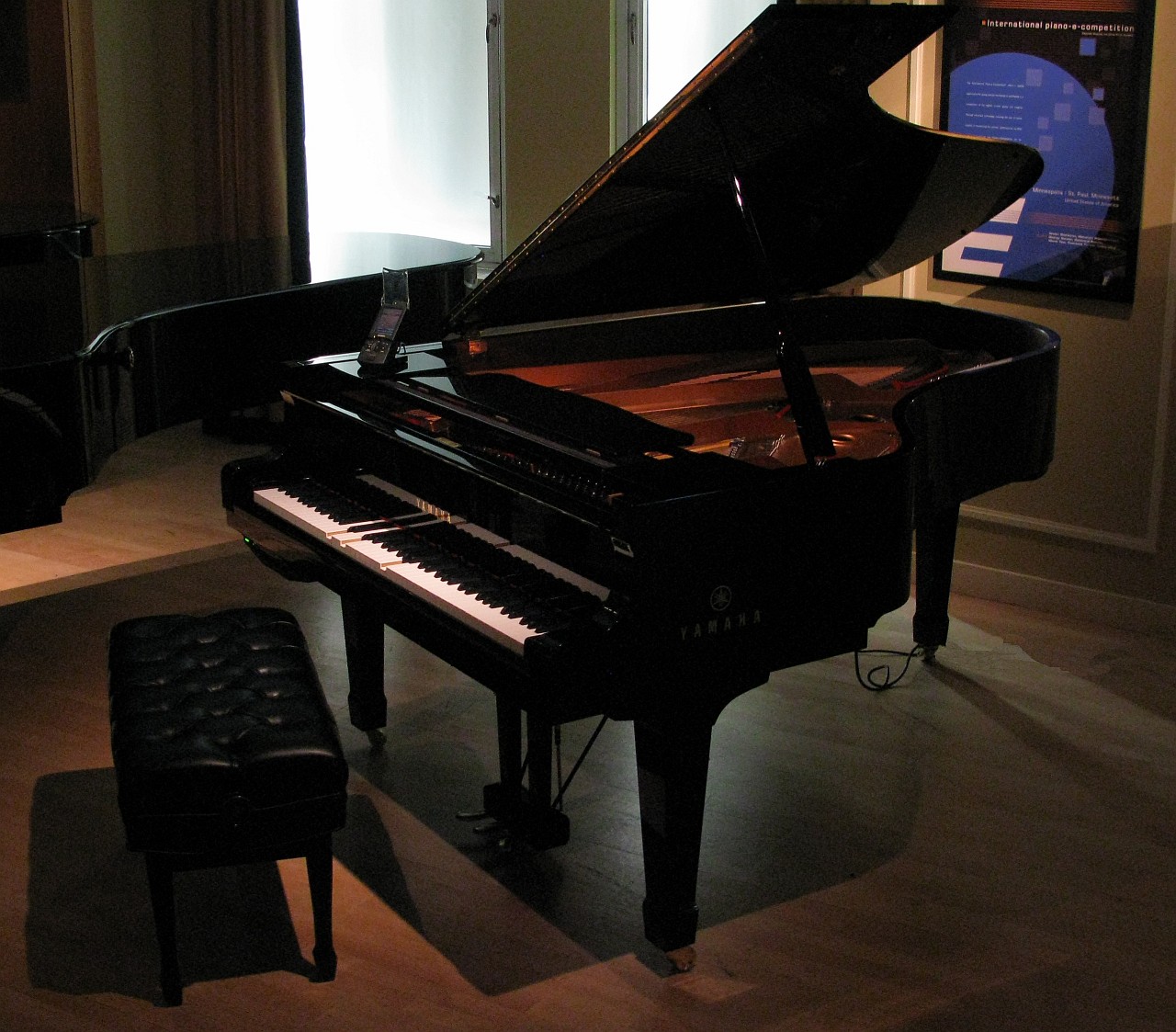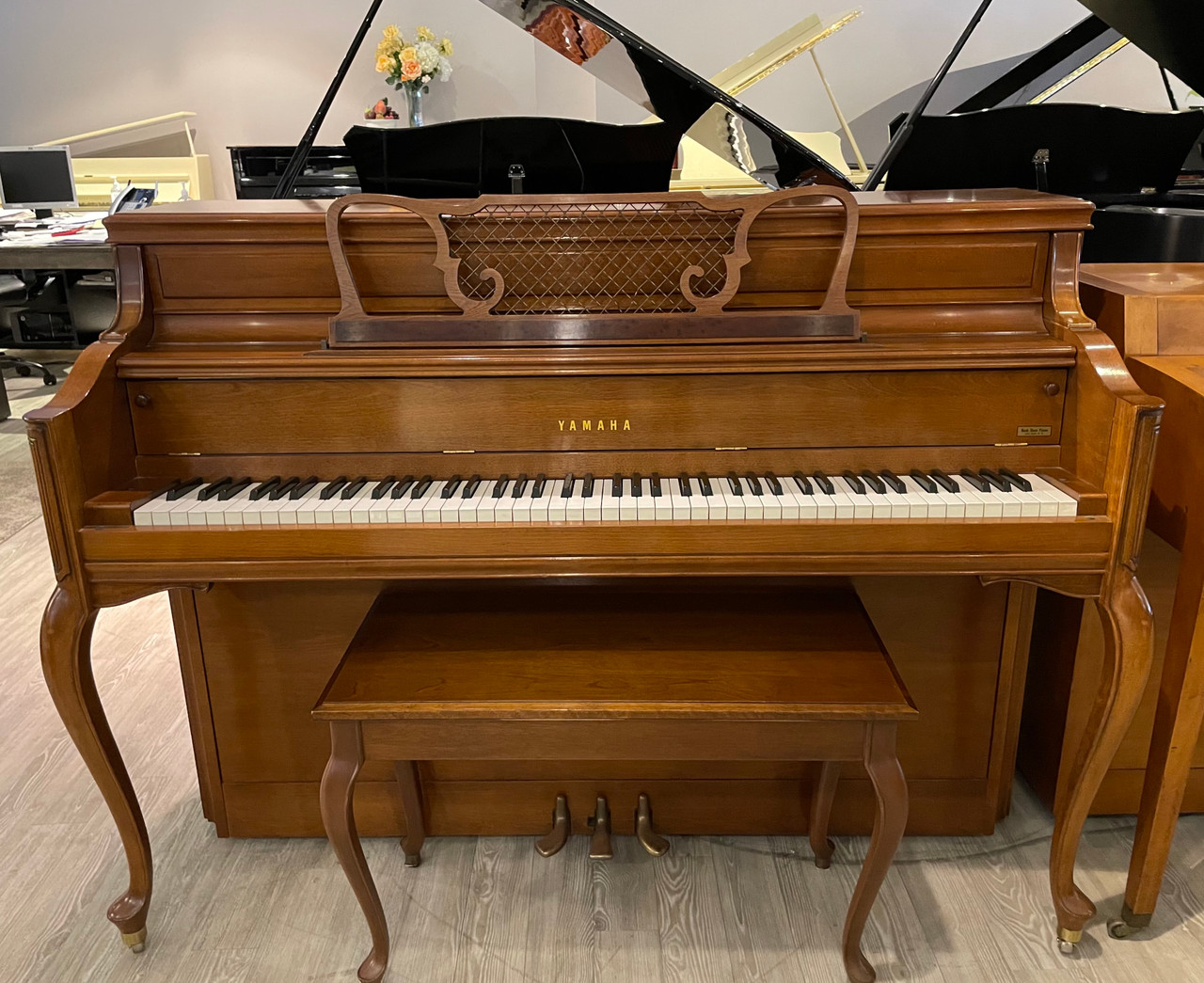Are you ready to embark on a musical journey and learn how to play the piano? Perhaps you’ve always wanted to learn, but have been hesitant because of the common notion that it’s a difficult instrument. As someone who has personally learned how to play the piano, I understand those feelings all too well. But fear not! In this article, we’ll unpack the question many beginners have – is piano hard to learn? We’ll explore different tips and tricks from experts in the field so that by the end, you’ll feel confident and motivated to start your own musical journey at the keys! So, let’s get started and discover just how attainable learning piano can be.
So, is piano hard to learn?
Learning to play the piano can be challenging, but with dedication and practice, it is definitely achievable. The difficulty level depends on the individual’s natural musical abilities and their commitment to learning. Some people may find it easier than others, but anyone can learn how to play the piano with determination.
One of the key factors in successfully learning how to play the piano is finding a good teacher or instructional program that suits your learning style. It’s important to have someone who can guide you through proper techniques and help you develop a strong foundation in music theory.
Another tip for beginners is to start slow and focus on mastering one skill at a time. Don’t try to tackle complex pieces right away – instead, break them down into smaller sections and work on them gradually. This will not only make it more manageable but also build your confidence as you see yourself making progress.
Consistent practice is also crucial when learning any instrument, including the piano. Set aside dedicated time each day or week for practicing and stick to it. Even just 15 minutes of focused practice every day can make a big difference in your skills over time.
Finally, don’t get discouraged if you hit roadblocks along the way – this is completely normal! Learning any new skill takes time and effort, so be patient with yourself and celebrate small victories along the way.
In conclusion, while playing piano may require some hard work initially, it can be an incredibly rewarding experience once you start seeing improvements in your skills. With determination, patience, and proper guidance from a teacher or program suited for your needs, anyone can learn how to play this beautiful instrument.
Understanding the Basics: The Music Theory Behind Piano
Music theory, while it may sound intimidating at first, is actually an exciting world of patterns and sounds, especially when considering the elegant and versatile instrument that is the piano. At its core, music theory breaks down how different notes fit together to create harmony or dissonance – a symphony of sonorous beauty or a cacophony of clashing keys. The piano provides a physical manifestation for this abstract concept as it neatly lays out the western scale in monochromatic steps across its face.
Let’s delve deeper into some fundamental elements of music theory applied to piano playing:
- Notes: When you hit any key on the piano, you’re essentially producing a ‘note’. This note has its own distinct pitch depending upon which key you play.
- Scales: A scale is merely a series of notes played one after another. Most common is the Major Scale consisting 7 unique notes like Do Re Mi Fa So La Ti (in Sound of Music!).
- Major Chords: These are formed by combining three specific notes from major scales giving us that sunny happy sound.
- Minor Chords: Similar to major chords but with one altered note creating more melancholic tones.
- Rhythm: A crucial element dictating tempo or speed at which these notes are played.
Grasping these basics can help transform your heapings of enthusiasm into artistic expression. Remember though, every pianist’s journey begins with understanding music theory before endless practice turns thoughtless fingers into instinctive musicians!
Mastering Keyboard Geography: Familiarizing Yourself with the Piano Keys
Have you ever glanced at a piano and wondered how musicians navigate the sea of 88 ivory keys with such ease? They’ve mastered what we like to call “keyboard geography“. It’s no secret; learning this skill is pivotal for every aspiring pianist. The first step in this journey is getting acquainted with the layout of the keyboard and recognizing that it essentially consists of repeating patterns.
To unravel these patterns, let’s start by looking at an octave – a set consisting of seven white keys (A-G) and five black keys arranged in groups of two and three. The key on extreme left, or rather the lowest note our ear can perceive, is ‘A.’ Followed by B, C-D-E-F-G which then loops back to A again- thus completing one set or ‘octave‘. Here are further details:
- C: This is often considered as home base in keyboard geography. Look for two black keys together; C will always be found directly before these twosome black notes.
- F: Then there’s F which holds its unique position right before each group trio on any piano keyboard.
Approach your piano-learning journey not just as an exercise to learn melodies but also understanding its structure intimately – akin to making friends with your musical partner. You’ll realize playing chords, mastering scales gets much easier when you feel confident about finding your way around those 88 keys!
Read also: self playing yamaha piano
The Role of Practice: The Key to Overcoming Initial Challenges with Learning the Piano
Isn’t it fascinating how those black and white keys create such magical tunes? However, when you first sit down at a piano, it can seem like an intimidating monster. Trying to synchronize both hands while reading sheet music feels akin to solving a complex puzzle blindfolded. But fear not! There’s one simple trick that has proven to be the ultimate weapon in overcoming these initial hurdles – practice.
Just as we need training wheels on our bicycle before we ride freely, similarly, playing piano also requires persistent and targeted practice sessions. At first sight, coordinating your fingers may feel like herding cats but with practice, your muscles will memorize movements (a phenomenon known as muscle memory) making them second nature.
- Consistent short practices: Instead of spending hours once or twice a week trying to master Chopin’s nocturnes or Beethoven’s sonatas all at once; dedicate smaller amounts of time each day.
- Scheduled pattern: Maintaining regularly scheduled practices allows for holistic development rather than cramming information at the last minute.
- Patient progress: Remember – Rome wasn’t built in a day and neither are piano skills; so, don’t rush yourself!
With each session handling those keys becomes smoother and creating melodies more effortless. With practice being the key ingredient in transforming challenges into strengths; allow yourself room for improvement because after all every masterpiece begins with ‘practice’.
Enhancing Your Piano Learning Experience Through Different Techniques and Styles
Learning to play the piano can be a beautiful journey, full of colorful notes and harmonious melodies. A variety of techniques and styles exist to enhance this learning experience – all it takes is to discover what resonates with you best.
One beneficial method involves using Sight-Reading. This technique requires interpreting musical notation on the spot without prior practice, like reading a book aloud for the first time. It not only boosts your ability to read music faster but also helps develop dexterity in your fingers. Another helpful tool is practicing scales in different keys, helping build muscle memory while familiarizing yourself with various tonalities.
You may also find value in exploring diverse piano styles.
- The Classical Style: Known for its structured compositions, precision, and technical complexity.
- Jazz: Recognized by its improvisational nature that allows creative freedom.
- Blues: Loved for its soulful rhythms that evoke deep emotions.
By dipping your fingers into these varying genres, you’ll gain a multi-dimensional grasp of piano playing. You may even discover a style that speaks directly to your musical soul! Whether it’s carefully crafted classical pieces or free-spirited jazz improvisations – each style will provide unique insights into distinct aspects of performance and composition.
Remember: there is no ‘one-size-fits-all’ approach when it comes to enhancing your piano-learning experience. Combine multiple techniques and explore various styles until you find what works best for you – musically speaking. Feel every note under your fingertips; let them guide you towards becoming an accomplished pianist who blends skill with passion seamlessly.
You may also like: c108 yamaha piano price
Seeking Guidance from a Professional: The Value of a Private Piano Teacher
Seeking guidance from a professional is like finding the secret key to unlocking your full potential. When it comes to playing the piano, having a private piano teacher can be an absolute game-changer. You might wonder why you should invest in private lessons when there are countless online resources or apps promising quick success. But there’s something uniquely valuable about one-on-one instruction that no digital platform can replicate.
The most obvious benefit of working with a dedicated tutor is personalized feedback.
- A good teacher studies your unique learning style and customizes their approach accordingly.
- You receive real-time corrections on everything from hand position to rhythm accuracy, thereby avoiding any habits that could hinder progress.
- A tailor-made lesson plan ensures constant growth based on current skills while stretching towards new goals.
Beyond technique, however, lies another often-overlooked value – nurturing musicality and emotional connection. A gifted mentor doesn’t just share knowledge; they engage your passion for music. They teach you not only how to play but also how to listen and respond emotionally to compositions. More than being able to skillfully press keys in sequence, making beautiful music stems from understanding its soul – this is where having a personal guide truly shines.
Piano teaching isn’t merely an information exchange process; it’s a journey filled with joys and challenges that are best navigated under expert guidance.
Conclusion: Embracing the Journey Towards Musical Mastery on the Piano
There’s an undeniable sense of fulfillment and joy that emanates from the heart when one begins to journey towards mastering the piano. It’s like embarking on a beautiful odyssey filled with melodies, harmonies, crescendos and decrescendos. The ivory keys become your canvas, allowing you to paint vivid images with sounds and tones. The thrill of creating something spectacularly sonorous from nothing is indeed invigorating. This adventure demands time, devotion and pure passion; but every note played brings us closer to a sweet symphony – our own musical masterpiece!
Mastery over the piano doesn’t merely mean playing Swan Lake or Moonlight Sonata flawlessly; it’s about feeling each beat deep in your bones, understanding each rhythm as if it were your heartbeat. Reaching this level of competence involves more than just practice—it demands you immerse yourself fully in music’s rich tapestry.
- Studying various genres,
- Exploring different composers,
- Gaining inspiration from diverse cultures,
- Daring experimentation with unconventional styles;
All form constituents of this exciting expedition towards pianistic prowess. While aiming for perfection may seem daunting at first glance, remember that embracing difficulties encountered along the way builds character and instils resilience – key attributes required not only for musical excellence but also life itself!
In conclusion, traversing through this voyage towards piano mastery enriches our lives profoundly, giving us valuable life lessons beyond just virtuoso performances! So let us rejoice in this journey — its challenges & triumphs — knowing that every step taken is another note added to our grand opus.


